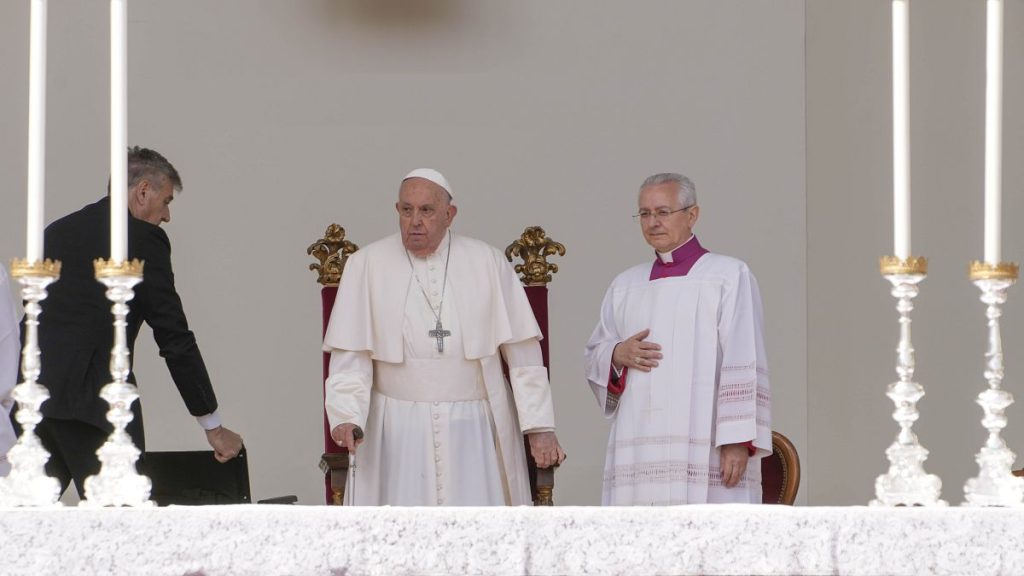Pope Francis recently addressed the ongoing struggles facing the people of Haiti during a mass in Venice. The pontiff expressed concern about the collapse of the health care system, food shortages, and violence in the country, which has been in turmoil since the assassination of President Jovenel Moïse in 2021. Gang violence is rampant in the capital, Port-au-Prince, and armed groups control much of the city. The United Nations has described the situation in Haiti as ‘cataclysmic’, with over 1,500 people killed in the first three months of this year. Pope Francis expressed hope that a new transitional council would help restore peace and stability to the country.
In addition to his concerns about Haiti, Pope Francis also addressed the conflicts in Ukraine and Gaza during his speech in Venice. He expressed sympathy for the Rohingya people, thousands of whom have fled a bloody military crackdown in Myanmar and are living in squalid camps in Bangladesh. The pontiff called for dialogue and reconciliation in these conflict zones and urged for peace to prevail. Pope Francis also touched on his own challenges, asking the congregation to pray for him as his work is not easy. Despite his health and mobility issues, the 87-year-old pontiff made a rare outing for this visit to Venice.
The pontiff’s comments come amidst ongoing global conflicts and humanitarian crises. The situation in Ukraine continues to be a point of concern, with tensions escalating between Russia and Ukraine. In Gaza, violence has also been prevalent, with Palestinians and Israelis facing ongoing conflict. The plight of the Rohingya people in Myanmar remains a pressing issue, with many living in dire conditions in refugee camps. Pope Francis’s words of solidarity and support for these vulnerable populations highlight the importance of international cooperation and dialogue in resolving conflicts and alleviating suffering.
Pope Francis’ message of hope and peace resonated with the thousands of people gathered in St. Mark’s square in Venice. As a figurehead of the Catholic Church, his words carry significant weight and influence, calling for empathy, compassion, and understanding in the face of global challenges. The pope’s call for dialogue and reconciliation reflects his commitment to promoting peace and justice in the world. By raising awareness of the struggles facing the people of Haiti, Ukraine, Gaza, and the Rohingya, Pope Francis seeks to inspire action and solidarity in addressing these complex humanitarian crises.
In conclusion, Pope Francis’ visit to Venice provided a platform for him to address pressing global issues and offer words of comfort and support to those affected by conflict and violence. His message of peace and reconciliation serves as a reminder of the importance of empathy and compassion in resolving conflicts and alleviating suffering. As Pope Francis continues to navigate his own health challenges, his commitment to advocating for peace and justice remains unwavering. Through his words and actions, the pontiff continues to send a message of hope and solidarity to those in need, urging for efforts towards dialogue, reconciliation, and humanitarian assistance in conflict-affected regions.












